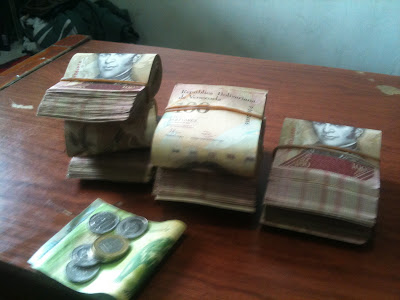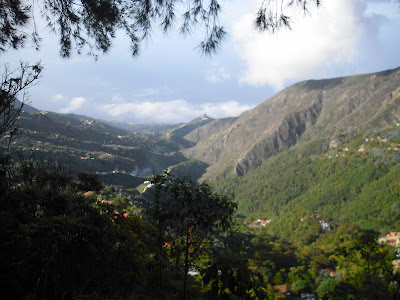2015. Best summed up as a year I'd largely like to scrap from the memory bank. Any time you lose a loved one is never easy; this is made even more difficult when it's someone who left this earth way before her time, someone who had so much more to give.
Yet, in some small tribute to my sister Lynda, a person who could find the good in the bad and who displayed great mental strength and positivity where others would have wilted, here I'll go through the personal and not-so-personal plus points of the year as we prepare to bring it to a close:
Yet, in some small tribute to my sister Lynda, a person who could find the good in the bad and who displayed great mental strength and positivity where others would have wilted, here I'll go through the personal and not-so-personal plus points of the year as we prepare to bring it to a close:
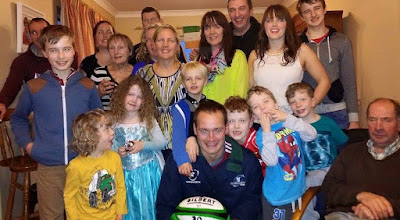 |
| Happier times ... |
Family first
We weren't to know the hammer blow that was coming, but a family reunion in February to celebrate our parents 40th wedding anniversary provided the opportunity to get all of us together.It also coincided with a belated 30th birthday for yours truly. Considering what transpired a few months later, this happy get-together has taken on an even greater significance. We'll always have the memories.
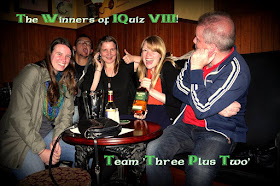 |
| IQuiz holders going into 2016. |
IQuiz Bogotá is born
The seeds of the idea to get this going actually came from the February trip home. A night at a pub quiz during my two weeks in Ireland reminded me of how much I enjoy them — even if I seldom win.So on return to Bogotá, in partnership with my Dutch mate Pieter, we set about creating our own quiz night in the Colombian capital. So far it's been eight down and not out.
OK, Pieter may have departed the Bogotá scene, but the hopes are that IQuiz will return in 2016 in some shape or form — minus the promotional videos that is.
Extending the extended 'family', Venezuelan style
It was with much curiosity and a touch of apprehension that I took up a friend's invite to visit her and her family in Caracas. Yes, I've been to Venezuela before, but not to the 'bloody' and 'dangerous' capital city with a heated election taking place.What I found there was what pretty much felt like a home from home. My hosts were extremely accommodating and great fun, representing in a way all that's good about Venezuela and its people.
The country may be in a bad state politically and economically — the latter making it cheap to visit when entering with foreign currency — but if you are willing to take the security risks there are decent rewards.
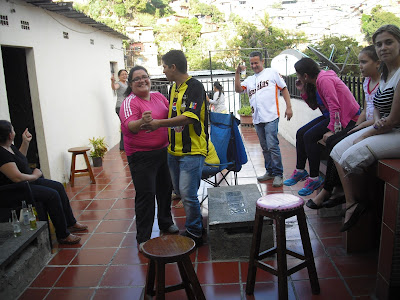 |
| The Venezuelan family! |
Come on you boys in green
Europe's big international summer football (soccer) fest returns next year and Ireland, for the first time ever, will be represented on the double. Both Northern Ireland and the Republic, in varying degrees of impressiveness, booked their places at Euro 2016, so what could be seen as a D-Day-esque invasion of green-clad supporters awaits France in June.Now, while the Republic really only made up the numbers at the previous renewal in 2012, and did so very badly at that, it's nice to have the chance to mix it with the 'big boys', times two as it is, all the same. Just ask the Dutch (or Scottish).
There you go. There's not much else to do with 2015 now but to move on from it. Of all the uncertainties there are, what we do know is that time will continue to tick on, however we measure it. Happy New Year to all.
________________________________
Facebook: Wrong Way Corrigan - The Blog & IQuiz "The Bogotá Pub Quiz".
There you go. There's not much else to do with 2015 now but to move on from it. Of all the uncertainties there are, what we do know is that time will continue to tick on, however we measure it. Happy New Year to all.
________________________________
Facebook: Wrong Way Corrigan - The Blog & IQuiz "The Bogotá Pub Quiz".

